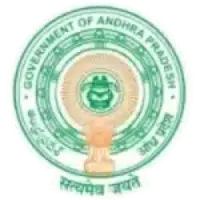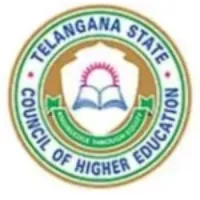Latest Applications Open 2024:
AP PGECET 2024 Bio-Technology Syllabus has been Available now. The AP PGECET Bio-Technology Syllabus is a vital resource for candidates aspiring to pursue postgraduate studies in this field in Andhra Pradesh. This comprehensive syllabus encompasses various essential topics and subjects, providing a structured framework for exam preparation. It covers various subjects within Bio-Technology, including microbiology, genetics, bioinformatics, and bioprocess engineering.
Candidates preparing for the AP PGECET Bio-Technology exam will find this syllabus instrumental in understanding the scope and depth of the subjects they must study. It helps them focus on specific areas and ensures they are well-prepared to tackle the exam questions.
The Bio-Technology Syllabus also serves as a roadmap for educators and course designers, aligning their teaching materials with the exam’s requirements. It reflects the latest developments and trends in the field, ensuring that candidates are up-to-date with the most relevant information. In summary, the AP PGECET Bio-Technology Syllabus is a crucial resource that plays a pivotal role in shaping the academic journey of aspiring biotechnologists, guiding them toward success in their postgraduate.
AP PGECET 2024 Bio-Technology Syllabus – Available
AP PGECET 2024 Bio-Technology Syllabus has been Available now. Click to Download Syllabus PDF.
Engineering Mathematics
Engineering Mathematics is a fundamental subject that forms the backbone of various engineering disciplines. It encompasses mathematical concepts, techniques, and principles essential for solving engineering problems and analyzing systems. This subject equips engineers with the mathematical tools necessary for designing, analyzing, and optimizing complex engineering systems and processes.
Linear Algebra:
Matrices and determinants, Systems of linear equations, Eigen values and Eigen vectors.
Calculus: Limit, continuity and differentiability, Partial derivatives, Maxima and minima, Sequences and series,
Test for convergence, Fourier series.
Latest Applications For Various UG & PG Courses Open 2024
-
- Parul University | Admissions Open for All Courses 2024. Apply Now
- Chandigarh University | Admissions Open for All Courses 2024. Apply Now
- NIIT | Admissions Open for All Courses 2024. Apply Now
- KL University | Admissions Open for All Courses 2024. Apply Now
- Alliance UG | Admissions Open for All Courses 2024. Apply Now
- GD Goenka | Admissions Open for All Courses 2024. Apply Now
Differential Equations:
Linear and nonlinear first-order ODEs, higher-order ODEs with constant coefficients,
Cauchy’s and Euler’s equations, Laplace transforms, PDE- Laplace, heat and wave equations.
Probability and Statistics:
Probability and Sampling Theorem, Conditional Probability, Mean, median, mode and
standard deviation, Random variables, Poisson, normal and binomial distributions, Correlation and regression
analysis.
Numerical Methods:
Solution of linear and nonlinear algebraic equations, Integration of trapezoidal and
Simpson’s rule, Single and multistep methods for differential equations.
Biotechnology
Microbiology:
Prokaryotic and eukaryotic cell structure; Microbial nutrition, growth and control; Microbial
metabolism (aerobic and anaerobic respiration, photosynthesis); Nitrogen fixation; Chemical basis of mutations and
mutagens; Microbial genetics (plasmids, transformation, transduction, conjugation); Microbial diversity and
characteristic features; Viruses.
Biochemistry:
Biomolecules and their conformation; Weak inter-molecular interactions in biomacromolecules;
Chemical and functional nature of enzymes; Kinetics of single substrate and bi-substrate enzyme catalyzed
reactions; Bioenergetics; Metabolism (Glycolysis, TCA and Oxidative phosphorylation); Membrane transport and
pumps; Cell cycle and cell growth control; Cell signaling and signal transduction;
Molecular Biology and Genetics:
Molecular structure of genes and chromosomes; DNA replication and control;
Transcription and its control; Translational processes; Regulatory controls in prokaryotes and eukaryotes;
Mendelian inheritance; Gene interaction; Complementation; Linkage, recombination and chromosome mapping;
Extra chromosomal inheritance, Chromosomal variation, Population genetics, Transposable elements, Molecular
basis of genetic diseases and applications.
Process Biotechnology:
Bioprocess technology for the production of cell biomass and primary/secondary
metabolites, such as baker’s yeast, ethanol, citric acid, amino acids, exopolysaccharides, antibiotics and pigments
etc.; Microbial production, purification and bioprocess application(s) of industrial enzymes; Production and
purification of recombinant proteins on a large scale; Chromatographic and membrane-based bioseparation
methods; Immobilization of enzymes and cells and their application for bioconversion processes. Aerobic and
anaerobic biological processes for stabilization of solid/liquid wastes; Bioremediation.
Bioprocess Engineering:
Kinetics of microbial growth, substrate utilization and product formation; Simple
structured models; Sterilization of air and media; Batch, fed-batch and continuous processes; Aeration and
agitation; Mass transfer in bioreactors; Rheology of fermentation fluids; Scale-up concepts; Design of fermentation
media; Various types of microbial and enzyme reactors; Instrumentation in bioreactors.
Plant and Animal Biotechnology:
Special features and organization of plant cells; Totipotency; Regeneration of
plants; Plant products of industrial importance; Biochemistry of major metabolic pathways and products;
Autotrophic and heterotrophic growth; Plant growth regulators and elicitors; Cell suspension culture development:
methodology, kinetics of growth and production formation, nutrient optimization, Production of secondary
metabolites by plant suspension cultures; Dairy root cultures and their cultivation. Techniques in raising
transgencies.
Characteristics of animal cells:
Metabolism, regulation and nutritional requirements for mass cultivation of
animal cell cultures; Kinetics of cell growth and product formation and effect of shear force; Product and substrate
transport; Micro & macro-carrier culture; Hybridoma technology; Live stock improvement; Cloning in animals;
Genetic engineering in animal cell culture; Animal cell preservation.
Immunology:
The origin of immunology; Inherent immunity; Humoral and cell-mediated immunity; Primary and
secondary lymphoid organ; Antigen; B and T cells and Macrophages; Major histocompatibility complex (MHC);
Antigen processing and presentation; Synthesis of antibody and secretion; Molecular basis of antibody diversity;
Polyclonal and monoclonal antibody; Complement; Antigen-antibody reaction; Regulation of immune response;
Immune tolerance; Hypersensitivity; Autoimmunity; Graft versus host reaction.
Latest Applications For Various UG & PG Courses Open 2024
-
- Parul University | Admissions Open for All Courses 2024. Apply Now
- Chandigarh University | Admissions Open for All Courses 2024. Apply Now
- NIIT | Admissions Open for All Courses 2024. Apply Now
- KL University | Admissions Open for All Courses 2024. Apply Now
- Alliance UG | Admissions Open for All Courses 2024. Apply Now
- GD Goenka | Admissions Open for All Courses 2024. Apply Now
Recombinant DNA Technology:
Restriction and modification enzymes; Vectors: plasmid, bacteriophage and
other viral vectors, cosmids, Ti plasmid, yeast artificial chromosome; cDNA and genomic DNA library; Gene
isolation; Gene cloning; Expression of cloned gene; Transposons and gene targeting; DNA labeling; DNA
sequencing; Polymerase chain reactions; DNA fingerprinting; Southern and northern blotting; In-situ hybridization;
RAPD; RFLP; Site-directed mutagenesis; Gene transfer technologies; Gene therapy.
Bioinformatics:
Major Bioinformatics resources (NCBI, EBI, ExPASy); Sequence and structure databases;
Sequence analysis (bimolecular sequence file formats, scoring matrices, sequence alignment, phylogeny);
Genomics and Proteomics (Large scale genome sequencing strategies; Comparative genomics; Understanding
DNA microarrays and protein arrays); Molecular modelling and simulations (basic concepts including the concept of
force fields).

As a dedicated Biology Science graduate, I’m passionate about sharing the latest updates in national and state entrance exams through my blog. I aim to keep aspiring students informed about exam trends, important dates, and changes in syllabi. With a keen interest in education, I strive to offer valuable insights for students navigating the competitive landscape of entrance examinations and admission tests. Stay updated with me.

